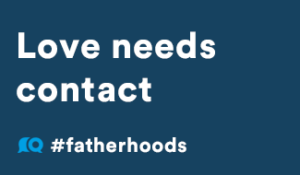The answer to this question is that it all depends on what type of arrangement is in place for receiving child support from the other parent in the first place. Unfortunately, there’s no single answer or solution that will suit every case.
The different types of arrangements you can put in place are expanded upon below.
Family Based Arrangements
Parents don’t have to use the Child Support Agency (CSA) or Child Maintenance Service (CMS) to arrange child maintenance. Over half a million families choose to make arrangements between themselves. This is known as a ‘family based arrangement’. You should be aware that family based arrangements are not generally legally enforceable.
What should you do if child support is not paid in accordance with your agreement?
If it is safe to do so, speak to the other parent. Try and find out why they have stopped paying. If it is shown that circumstances have changed, try and agree a voluntary change to your agreement between you.
Top tip – get some early advice before arrears get too large and look at the most cost-effective way to deal with matters based on your personal circumstances.
If that doesn’t work you will need to contact the government’s statutory service, the CMS. The CMS will work out the amount of child maintenance due using a standard formula. They can collect payments on your behalf and can also take enforcement action if the other parent stops paying through this arrangement. But please note, there are fees associated to using the service depending on whether you use the full collect and pay service (currently the paying party pays a fee of 20% of the payment and the receiving party pays 4%) or just the assessment service.
Statutory child maintenance arrangements
The CMS opened in 2012 and manages all new applications for a statutory arrangement. The CSA is now closed for new applications but it does still manage many arrangements that were set up before December 2013. An arrangement through the CSA or the CMS is legally binding. This means that action can be taken by either service if the payments stop. The CSA and CMS have significant powers which include the following:
- Taking money directly from the non-payer’s earnings (a deduction from earnings order).
- Taking money from the non payer’s bank or building society account (a deduction order).
- Applying to the court for a liability order. Once a liability order is obtained it can be referred to the bailiffs who can take property away from the non payer to be sold to cover arrears and costs.
- Applying to the court for a charging order. Once obtained the non payer can be forced to sell property and use the money to pay off child maintenance arrears.
- Taking money from the non payer’s benefits if your arrangement is under the CSA scheme.
Housing & finance
- Applying to the court for the non payer to be disqualified from driving or sent to prison if all other enforcement methods have failed.
- Recently new powers exist to disqualify a non-resident parent with child maintenance arrears from holding or obtaining a United Kingdom passport
The CSA or CMS also have the power to apply to the High Court to prevent the non payer from getting rid of property or transferring property if they believe he/she is doing this to avoid paying child maintenance or if already disposed by applying to the court for an order to cancel the sale or transfer of property.
There is usually no time limit within which the CSA or CMS can collect child maintenance arrears including the discretionary power to recover from a deceased’s estate.
Consent Orders
This is a type of court order which makes the agreement legally binding. These types of agreements are often made with the benefit of legal advice, usually within divorce/ dissolution/separation proceedings. They can be enforced through the courts if either parent is in breach. So, what should you do if payments stop?
- If payments under the consent order are not made you should apply back to the court to enforce the payment of arrears.
- The court’s permission is needed to recover arrears of longer than 12 months.
- If, and only if, the order is more than 12 months old you can approach the CMS so that they can carry out a fresh assessment. However, the CMS can’t recover arrears under the court order.
- On an assessment, payments may change – up or down.
You should also note that if you apply to the court to enforce the arrears, the other parent may well make their own application to the CMS so that they take over the responsibility of the child maintenance arrangements as opposed to the family court.
It’s important to get any application to the court to enforce arrears as quickly as possible.
Like the CSA and CMS, the court can take a number of enforcement measures which include:
- A deduction from earnings order;
- Taking property away from the non-payer to be sold to cover arrears and costs;
- Taking money directly from the non-payer’s bank account;
- Forcing the non-payer to sell property and use the money to pay off child maintenance arrears;
- A judgment summons which means the non payer could be sent to prison.
Please note there are fees in applying to the court and if you use solicitors you will need to assess the cost/benefit of paying for advice and/or representation.
Enforcing child maintenance if a parent lives abroad
Parents can still make family based arrangements even if they live in different countries.
In some circumstances parents are also able to use the CMS if the paying parent lives abroad and they are a civil servant; works in Her Majesty’s Diplomatic Service; is a member of the Armed Forces; works for a company that is based and registered in the UK or is working on secondment for a prescribed body like a local authority.
Countries in the EU – at least for the moment – must enforce court orders for child maintenance and decisions made by the CSA or CMS. If the paying parent lives in Australia the Australian CSA may be able to assist.
If the paying parent lives outside the EU and Australia and you have a court order in respect of child maintenance you may be able to get the court order enforced in a foreign country.
The UK has a number of reciprocal arrangements with foreign countries (which is updated regularly). Where reciprocal arrangements exist and a maintenance order needs to be enforced abroad the first port of call is the Reciprocal Enforcement of Maintenance Orders (REMO) Unit.
The impact of Brexit is likely to involve significant changes to some of the reciprocal enforcement arrangements.
Top tip – get some early advice before arrears get too large and look at the most cost-effective way to deal with matters based on your personal circumstances.
Posted on March 7, 2019














